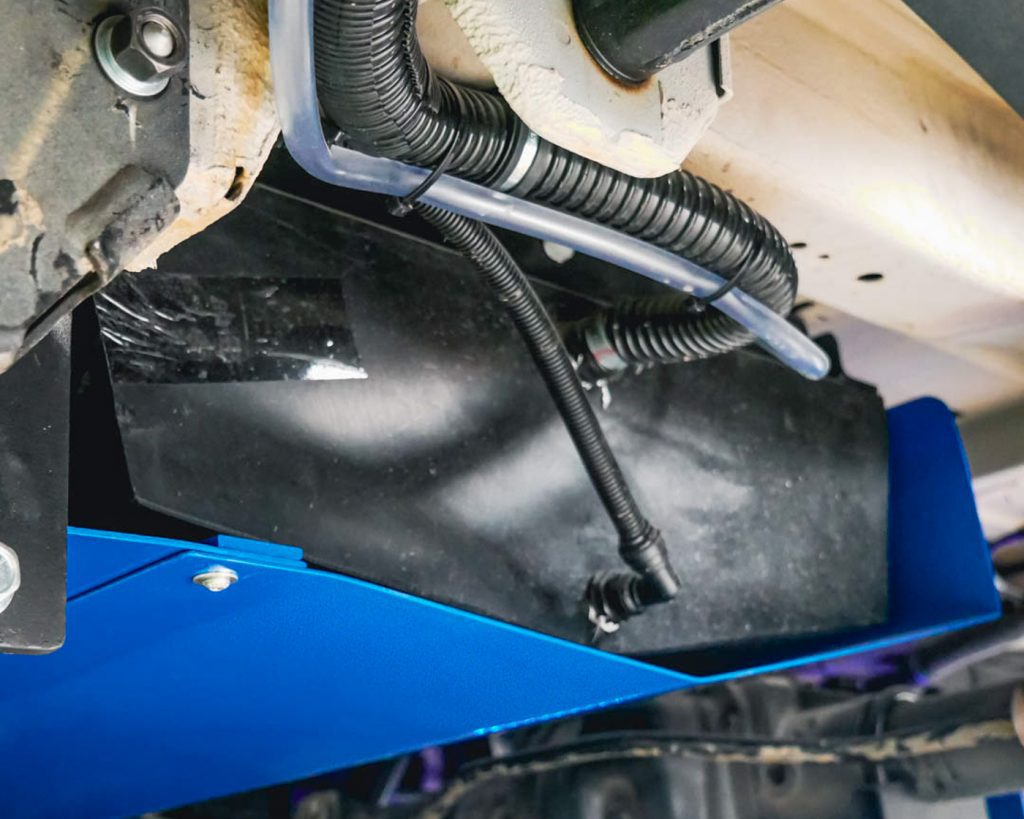Introduction
‘Van Life’—a lifestyle movement centred on simplicity, freedom, and mobility—has witnessed considerable interest in Australia. This trend is characterised by individuals, couples, and families choosing to live full or part-time in converted vans, embracing minimalism and the open road. Meanwhile, Australia is grappling with a significant challenge: a national skills shortage, especially in regional and remote areas. This blog post will explore an unconventional yet potentially effective solution to this issue—could the growing Van Life movement help alleviate Australia’s regional skill shortage?

Understanding the National Skill Shortage in Regional & Remote Areas
A national skill shortage is a situation where the demand for a particular set of skills outstrips the supply of professionals with those qualifications. This imbalance is particularly acutely felt in regional and remote areas of Australia, as these locations often need more infrastructure, amenities, and opportunities typically found in metropolitan areas, thus making them less attractive to skilled workers.
For instance, professions such as medical practitioners, engineers, and skilled tradespeople like electricians and plumbers are in high demand in these remote areas. Still, they continue to experience a need for more qualified individuals. This shortage of key skills in regional Australia exacerbates the problems of infrastructure development and socio-economic growth, creating a vicious cycle that further deters skilled workers from relocating there.
Job Opportunities in Regional and Remote Areas
The regional and remote areas of Australia present a diverse range of job opportunities. These roles can be broadly categorised into skilled and low-skilled jobs.
Skilled Jobs:
Medical Practitioners: Doctors, Nurses, and Paramedics
Engineers: Civil, Mechanical, and Environmental Engineers
Skilled Tradespeople: Electricians, Plumbers, Carpenters, and Welders
Teachers: Primary and Secondary School Teachers
Agricultural Specialists: Farm Managers, Crop Agriculturists, and Veterinarians
Mining Professionals: Mining Engineers and Geologists
Low-Skilled Jobs:
Retail Workers: Store Assistants and Cashiers
Hospitality Staff: Hotel Receptionists, Cooks, and Cleaners
Farm Workers: Farm Hands and Labourers
Construction Labourers
Delivery Drivers
Personal Care Workers: Home Aides and Childcare Workers
The Potential of Van Life
Van life is more than a trend—it presents a compelling lifestyle that increasingly resonates with skilled professionals. It offers unique benefits which could potentially address the issue of the skill shortage in regional and remote Australia.
Flexibility
A key advantage of embracing van life is the unparalleled flexibility it offers. This lifestyle allows professionals to work in different locations without needing permanent relocation or long commutes. For skilled workers such as medical practitioners or engineers, who are often required to travel to various sites or serve in different communities, van life provides the flexibility to move as and when the job demands.
Mobility
The mobility that van life affords can be a game-changer for many professionals. Moving freely around the country to regions where their skills are most needed can be professionally rewarding and personally enriching. This mobility can open up new job opportunities that were previously unfeasible due to geographic limitations.
Cost-Effectiveness
Living in a van can also be cost-effective compared to traditional housing, especially in metro cities. The reduced cost of living—lower rent, utilities, and maintenance—can make jobs in areas with lower pay scales more attractive. Additionally, the simplicity and minimalism inherent in van life can lead to a lower cost of living overall, freeing up resources for other pursuits or savings.
In conclusion, van life’s flexibility, mobility, and cost-effectiveness could make it an appealing choice for skilled workers, potentially offering a unique solution to the skill shortage in regional and remote Australia. The possibility to experience diverse landscapes, communities, and work opportunities while maintaining a low-cost, flexible lifestyle might tip the scale for many professionals considering a move to these regions.

Working Holiday: A Unique Opportunity
The ‘Working Holiday’ scheme is an innovative program designed to promote cultural exchange and closer ties by allowing young individuals to have an extended holiday supplemented by short-term employment. This concept provides a unique opportunity to travel, work, and live in a new country, gaining a deeper understanding of its culture, lifestyle, and people. The benefits are manifold: from expanding one’s worldview, and developing new skills, to forming international networks and even discovering new career paths.
In this context, the van life movement can significantly enhance the working holiday experience. The mobility provided by van life allows individuals to explore various regions of the country, broadening their knowledge beyond typical tourist destinations. They can seek employment in different areas as per their convenience and interest, thus diversifying their work experience and personal growth.
Short to Long-term Regional Placements
Short to long-term regional placements are pivotal in addressing skill shortages, especially in remote and regional areas of Australia. These placements allow professionals to work in these areas for a specified period, contributing their skills where they are most needed. This approach benefits the regions, which gain the necessary skilled workforce, and the professionals, who can gain unique work experiences and, often, financial and lifestyle benefits.
In this context, van life can significantly facilitate these placements. The mobility and flexibility inherent in van life align perfectly with the nature of short to long-term regional placements, eliminating the need for permanent relocation. Professionals can live in their vans, moving to different regions based on their placement schedules. This lifestyle can make regional placements more appealing and manageable, potentially attracting more professionals to consider such opportunities. Therefore, van life could be a valuable tool in addressing Australia’s regional skill shortage.
The Role of Government and Private Sector
The role of both government and the private sector is crucial in shaping the future of van life as a viable solution to skill shortages in regional and remote Australia. Government policies and initiatives can provide significant support. For instance, developing and implementing regulations that allow for safe and legal parking or overnight stay for van dwellers could make the lifestyle more accessible and attractive. Government initiatives could also include providing infrastructure, such as sanitation facilities and safe parking lots, especially in areas with high skill demand.
On the other hand, private sector companies can contribute by offering remote work opportunities, creating a more flexible work culture that complements the van life lifestyle. Companies could consider providing resources for mobile connectivity to ensure that professionals can carry out their work seamlessly, regardless of location. Additionally, private sector organisations can support the van life culture by promoting it as a legitimate and desirable lifestyle choice, thereby contributing to a societal shift in norms and expectations about work and life. By collaborating and taking proactive steps, both the government and the private sector have the potential to catalyse the growth of van life, turning it into a strategic solution to skill shortages.

Conclusion
To recapitulate, the emergence of the van life movement presents unique benefits such as flexibility, mobility, and cost-effectiveness, making it an appealing lifestyle choice for many professionals. This lifestyle, combined with the innovative ‘Working Holiday’ scheme and short to long-term regional placements, can address Australia’s national skill shortage by attracting a more mobile and flexible workforce. The role of the government and private sector in creating a supportive ecosystem for this lifestyle cannot be understated. As we look towards future solutions for skill shortages, the van life movement offers a promising approach that warrants serious consideration. If you’re a skilled professional seeking novel opportunities, or an employer trying to find innovative solutions to skill shortages, embracing van life could be a paradigm-shifting decision.



